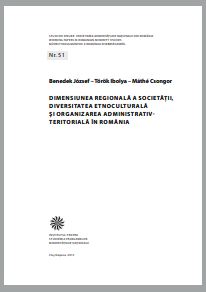Istoricul studiului limbii rromani şi al şcolarizării rromilor în România (1990–2012)
History of Romani Study and Roma Education in Romania (1990-2012)
Author(s): Gheorghe Sarau
Subject(s): School education, Higher Education , History of Education, Transformation Period (1990 - 2010), Ethnic Minorities Studies, Identity of Collectives, Pedagogy
Published by: ISPMN Institutul pentru Studierea Problemelor Minorităţilor Naţionale
Keywords: Romani study; Roma education; Romania; 1990-2012; University level education; Roma identity; School education;
Summary/Abstract: The achievements in Romania regarding education for Roma are, of course, undeniable, those related to the identity reconstruction through the study of the language in the institutional system are also world-leading, the measures to promote and form a proactive Rroma intellectuality are good. Undoubtedly, the many human resources formed and present in the educational system are more than necessary, the impressive working tools for teaching Rromani from the kindergarten to the university level are obvious, the 10-13% Roma students studying in mother tongue Romani and over 7-11% Roma students in the general number of preschools and pupils in the pre-university system who attend school and assume indifferent Roma identity impress in a pleasant way etc., therefore, they all speak for themselves, both quantitatively and qualitatively. With all these unprecedented gains, however - relative to the large number of Roma in Romania (possibly two and a half million, with and without Roma identity assumed continuously) - there is still much to be done so that we can speak of more than 2-3% of high school students with a Roma identity assumed by a percentage of Roma children in grades I-IV higher than the current one (13%) and who do not decrease, as at present, to grades V -VIII (9-11%), let's talk about the presence of more than 10%, as now, of Roma preschoolers compared to the other 90% of preschoolers among other ethnicities, we can have many more kindergarten classes and classes primary education to fully study in their own Rromani language, to register as few segregated classes as possible and to find as few discretionary attitudes fromschool administrators and local authorities when talking about co-opment, (Roma inspectors, Roma executives, Roma school mediators, Roma teachers, Roma educators and teachers, Roma school counselors, etc.), and last but not least, when we will learn to be more empathic and better living and promoting diversity (linguistic / cultural / ethnic / historical / religious / physical / gender).
Series: STUDII DE ATELIER. CERCETAREA MINORITĂŢILOR NAŢIONALE DIN ROMÂNIA
- Page Count: 46
- Publication Year: 2013
- Language: Romanian
- Content File-PDF

